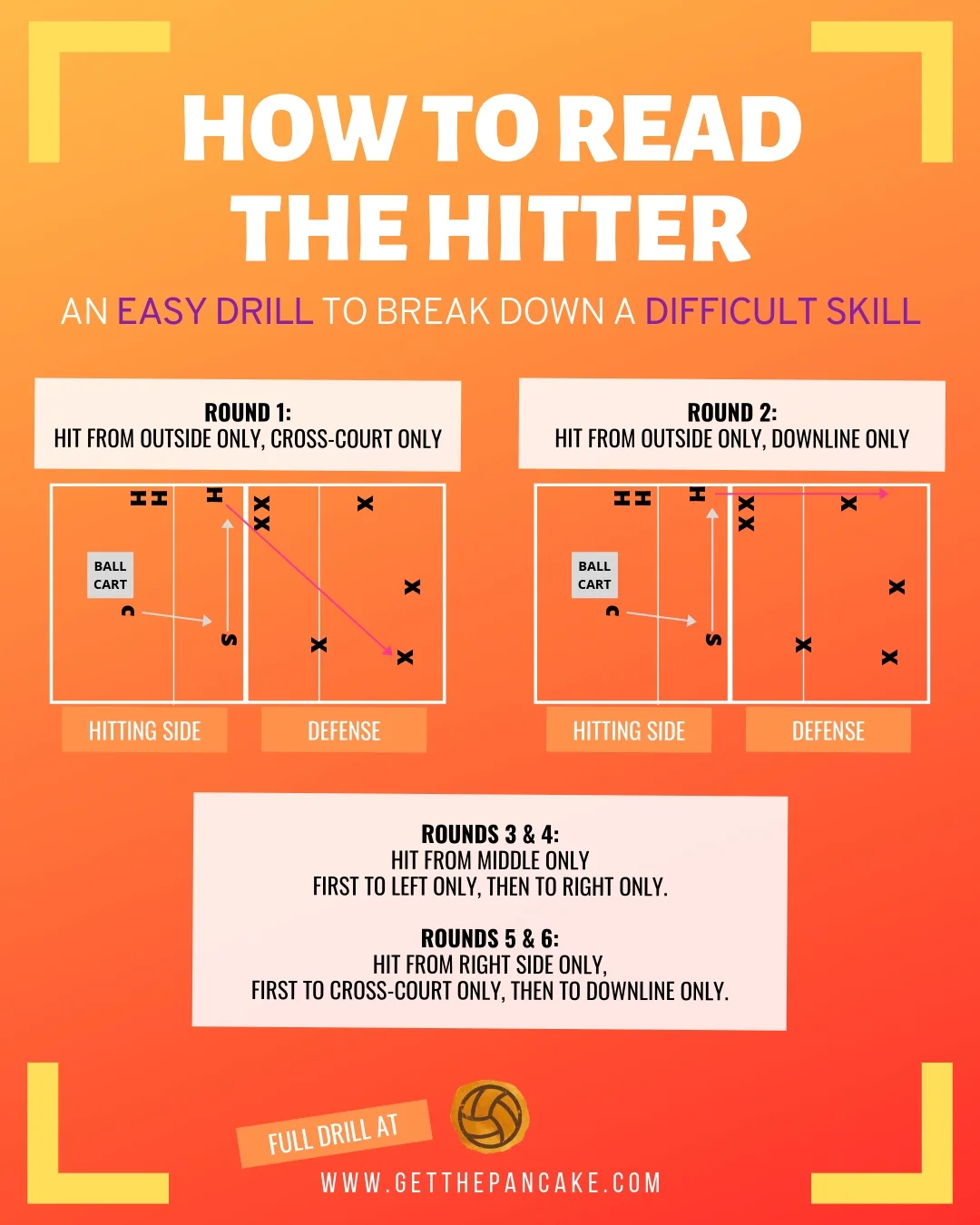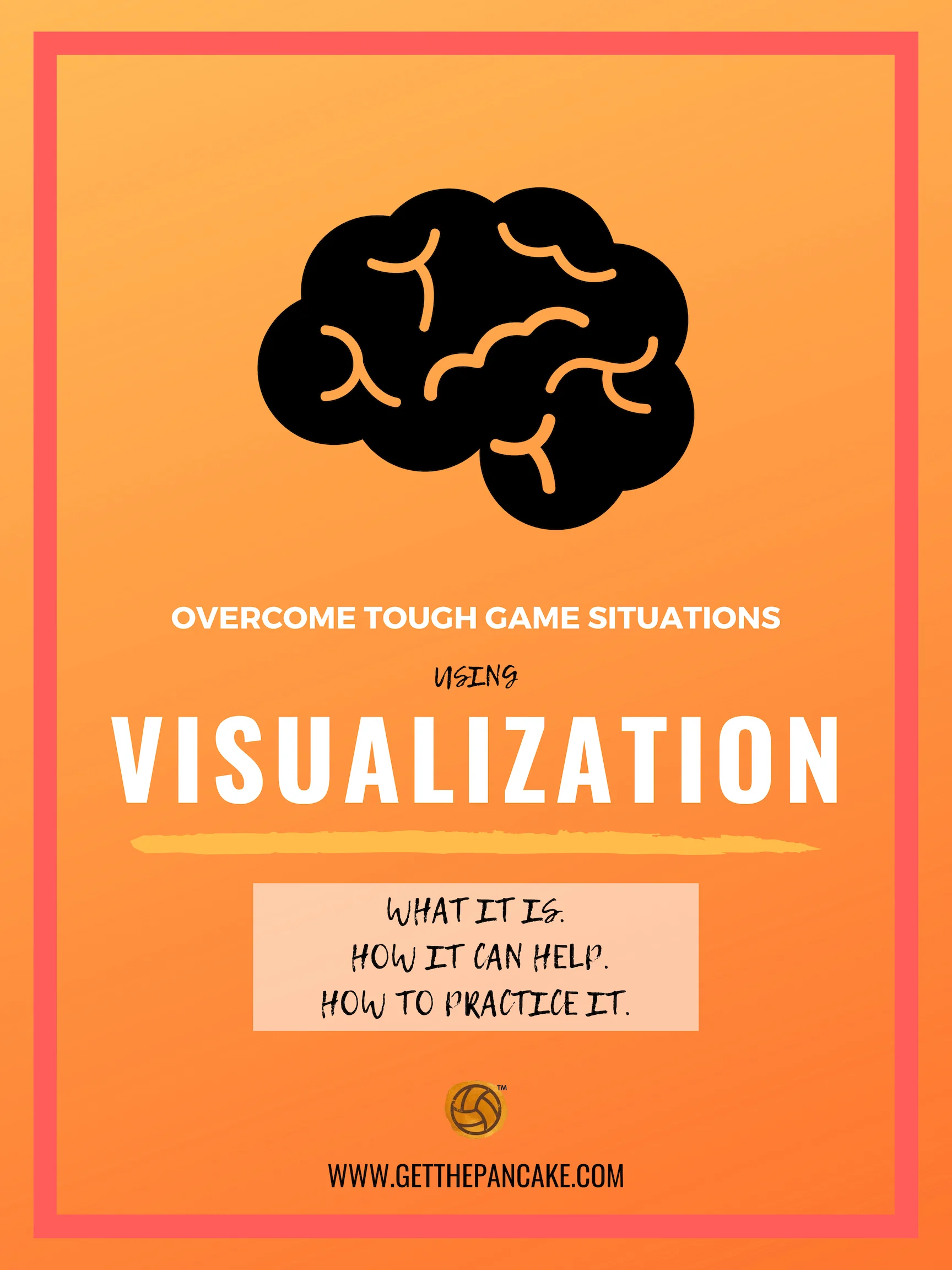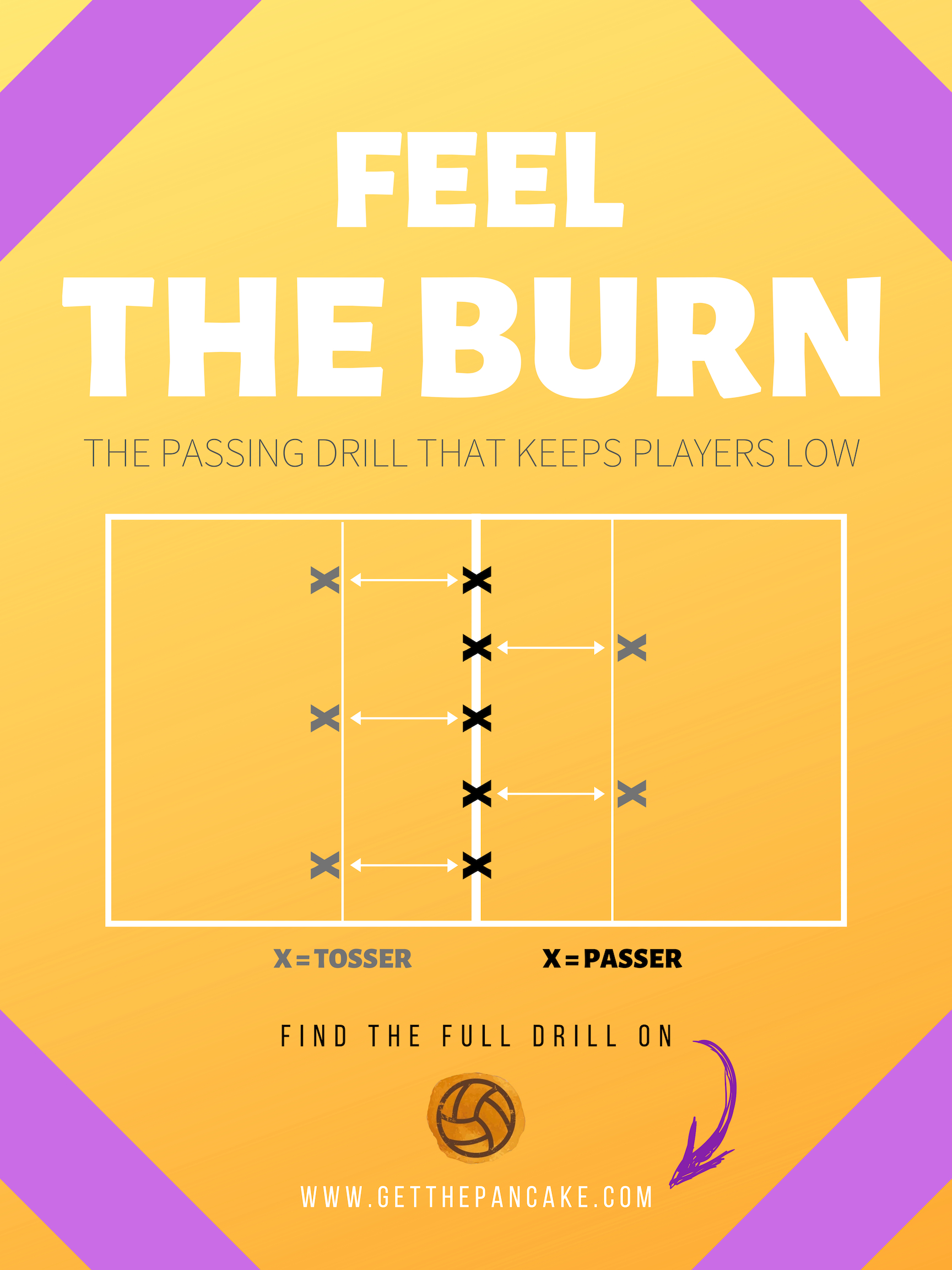A LOT CAN BE ACCOMPLISHED ON THE COURT IF YOU ENTER THE GYM WITH A PLAN
Find drills for your next practice, fun games for volleyball camp, and articles covering topics like visualization and playing time philosophy!
Prisoner Volleyball - A Fun Game For All Ages
With the constant threat of being captured, “Prisoner” is a volleyball drill that challenges players to step up and perform under pressure. And because players on the court can rescue their teammates, anyone who’s on the sidelines stays engaged in the drill, cheering loudly!
First Kill: A Serve Receive Drill Focused on Strong Attacks
Start any match out strong with the “first kill” mentality! Confidence in serve receive comes from high-quality reps, which your volleyball team will get plenty of in this drill!
Switch The Court: A Volleyball Drill for Block Coverage
Run this advanced volleyball drill with high school and club teams who need to work on their block coverage! Players will get a ton of reps working on covering the block and will feel confident handling a block in a match.
3-Day Serve Receive Progression Drill | Eye-Sequencing
Serve receive is one of the most critical elements of volleyball. Without a decent pass in serve receive, many teams will struggle to send an aggressive attack back to their opponent. But by developing one simple skill, your players can better predict where the serve will go. This will dramatically improve your odds of passing up a playable ball. That skill?
Eye-sequencing.
Mix It Up: A Volleyball Hitting Drill
Benefits Of Running This Attacking Drill:
Beginner volleyball players develop multiple attack options.
Intermediate and experienced players start to attack more strategically.
Your defense gets better at recognizing different attacks.
Your team becomes more well-rounded because they’re playing against better players in practice once they all understand these concepts.
Easy Drill To Teach Your Passers To Read The Hitter
According to Coach Karch Kiraly, (U.S. Women's National Volleyball Team Head Coach) the most important skill in volleyball is to learn to read the ball.
This is one of those answers which is simple in theory, but very, very challenging in practice. You can’t just TELL players to read the ball. Heck, half of them probably wouldn’t even know what you meant (and of course, they’d just nod their head and go with it until you called them out).
In order to play volleyball well, you need to anticipate where the ball will go. This has recently become a point of pride for coaches who yell at their teams for diving (they wouldn’t need to dive if they read the ball correctly). Which… they’re not wrong! But we need to make sure we teach players to read and anticipate before we expect them to eliminate any dives or rolls.
This drill teaches players how to read the hitter through simple, repetitive plays that draw attention to movement patterns, helping players learn faster.
Volleyball Drill Classics: Queen of The Court
If there’s one volleyball drill that just about EVERY volleyball player will play throughout their career, it’s Queen of the Court (or King of the Court/Monarch of the Court depending on who you’re coaching).
Queen of the court is a top volleyball drill because it…
is fast-paced
is FUN
is competitive
is good as a warm-up drill or to end practice with
can be played with as few as 8 players, and up to 16 (or more) per court
If this sounds like a must-have for your coaching binder, I’d have to agree with you. Not only is this a good volleyball drill for practice, you can use it at open gyms and volleyball camps!
6 Small Group Volleyball Drills: Perfect for Holidays and Spring Break Practices!
Let’s just cut to the chase here. You won’t have perfect attendance at every practice.
And while that can be frustrating (especially for the well-prepared coach who planned practice down to the minute, with perfectly selected drills based on numbers), it’s a reality that we need to deal with.
Basketball practice. Spring Break. Family trips….
These all tend to make planning a high-quality practice a challenge.
UNLESS! You have these six drills in your back pocket.
Using Visualization to Combat Tough Game Situations
No matter what our team’s normal skill level is, sometimes there are just games (or even full days!) where our athletes are just…. off.
It is probably worthwhile for you to dig into those reasons in an attempt to stop this situation from happening in the future. However, since it is usually a large, variable combination of things that may or may not have a possible solution, today I want to talk about what to do after you recognize this in your team!
I want to talk about visualization in volleyball, especially because it helped me when I was playing and still helps to this day. It’s likely that not EVERYONE will buy-in… And that’s ok!
But I want to make sure your athletes have the right tools in their toolkit to pull themselves out of a slump if possible.
4-Minute Team Warmup Idea For Volleyball Tournaments
You’ve put in HOURS of practice, have gone over every rotation at least two dozen times, and think you’ve worked out the best lineup for your first tournament.
You make sure everyone knows where to go, when to be there, and what is (and isn’t!) allowed in the facility.
Everyone gets to the court relatively on time, and the girls start passing the ball around until it’s time to get started. And suddenly you realize… You don’t have a warmup planned.
This warm-up gets everyone moving and working primarily on the skills they’ll need in their main position, and I’ve liked how well it has worked with a few of the teams I’ve coached in the past.
Setter Out: A Drill for Setter/Libero Practice
One of the worst feelings as a coach is when you watch your team struggle with something you FORGOT TO TEACH THEM.
“Setter out” is one of those things. Most coaches think they can just say “Setter out!” and then their players will get it. While the concept is simple, players will need to practice this skill before they fully understand what you mean.
The best part is… this is one of those * CLICK * skills that, once players understand, they’ll be unstoppable!
Feel The Burn: The Passing Drill That Keeps Players LOW
“Stay low!” “You’re standing up!” “Use your legs!” “Shrug your shoulders!” “Get down!”
You know you’ve said one (or all!) of these phrases before. But if you find yourself saying it over, and over, and over again, maybe verbal feedback isn’t working?
That’s why I like to run the drill “Feel the Burn!” Players get immediate feedback that signals they are standing while passing the ball AS IT HAPPENS.
High Rep Serve Receive Drill
How many times have you gotten STUCK in a bad serve receive rotation? Either one of your players is having an off-day, or the server on the other team is just picking you apart. No matter what the reason, it stinks to be stuck there. Waiting, praying that the other team will just miss their serve and let you move on! Instead of trying the tactic of "wait and see," switch to being proactive!
This high rep serve receive drill will help your team understand the options they have when they can't get out of a certain serve receive rotation. Even better, if you coach them through it correctly, they'll often times make the change before you even realize it's time to switch things up!
Easy Passing Drill: Shuttle Passing
If you're looking for an easy passing drill you can run at your next volleyball practice, try shuttle passing!
Shuttle passing is great for teams of all ages, and can be altered to change the level of difficulty for your team in particular! I've run this drill with 2nd and 3rd graders, and with high school teams as well. Once you understand the basic concept, you'll be able to make adjustments to the drill, making it a great ball control warm-up for your team!
Team Serving Challenge | Serving Under Pressure
One element of game time that we often struggle to replicate in practice is PRESSURE. The pressure to get the first serve of the game in, the pressure to make the serve after a teammate has missed, and especially the pressure of serving accurately and aggressively on game point! Few "punishments" can mimic the feeling of having all eyes on you and the pressure you feel to get the ball in. Likewise, few punishments actually feel as bad as missing during a critical time in the match.
Serving Around the World Drill Diagram
Do you need a quick game to run at your next volleyball practice? This easy serving game will challenge your players to serve to zones without them even realizing that they're learning! Just print out this drill and save it for your next practice. Keep it in your binder as a reminder when you need inspiration! You can make this more competitive by splitting your players up into teams and having them try to go around faster than the other team, going in reverse order, or even giving them a certain order they need to serve in!
Hitting Lines vs. Defense | Drill Print-Out and Video Description!
Hey coaches! I’ve been advertising this drill a ton because not ONLY did I make a video describing the different ways to set it up, I also made a printable version for you! This drill, Hitting Lines vs. Defense, is one of the most versatile drills I’ve covered for you so far. The setup is easy and the concepts are pretty basic, but it’s SO useful! Just because it’s not complicated doesn’t mean it’s not for high-level teams either. Teams at all skill levels can use this drill and it will benefit them. Want the short version?
Swing Set Drill - Team Setting Drill
One of the toughest skills I have a hard time creating drills for is setting. When you cover passing and hitting, these are skills that all players on your team will need to use. But setting? Yes, everyone needs to know HOW to set... But they will rarely set from the setting position and would therefore not benefit as much from constant setting drills. HOWEVER!
There is something to be learned from practicing this skill occasionally. I'm a big fan of training my players to play every position so that their understanding of the game is pushed beyond the confines of their position (wow, that was deep lol). This drill gives players a good understanding of what it take to be a setter, and will help them see the court from a new perspective.
Setter Development Drills for 7th and 8th Graders
Teaching middle school players how to set a volleyball can be challenging. Often times, there are only one or two players who show a natural inclination towards setting, and the rest are, more or less, hopeless. Or at least that’s how you feel at tryouts!
Training setters can be very time consuming, and when you are coaching by yourself it can be hard to justify spending practice time running a drill which is designed for only one or two players. But setters make or break a team! Spending time during practice working on their skills will only help you in the long run. Even better, you will likely see dramatic improvements right away.
Volleyball Warm-Up Drill: Tip and Chip
Some of the greatest overlooked skills in volleyball are the tip and the chip shot. After a beautiful pass and a perfect set, a crowd will go nuts to see the ball smashed to the floor. But a well-placed tip which still results in a kill? It will get applause, but not the crazy jumping up and down from the masses.
And that's too bad. There have been countless matches where my front row will get blocked, dug, and just plain hit the ball out of bounds trying to avoid a rock-solid defense. The trick here is to realize that a great defense for these attacks often has a weak spot, right around the blockers or in the middle of the court. The only way to get to these places efficiently? A tip or chip.


















